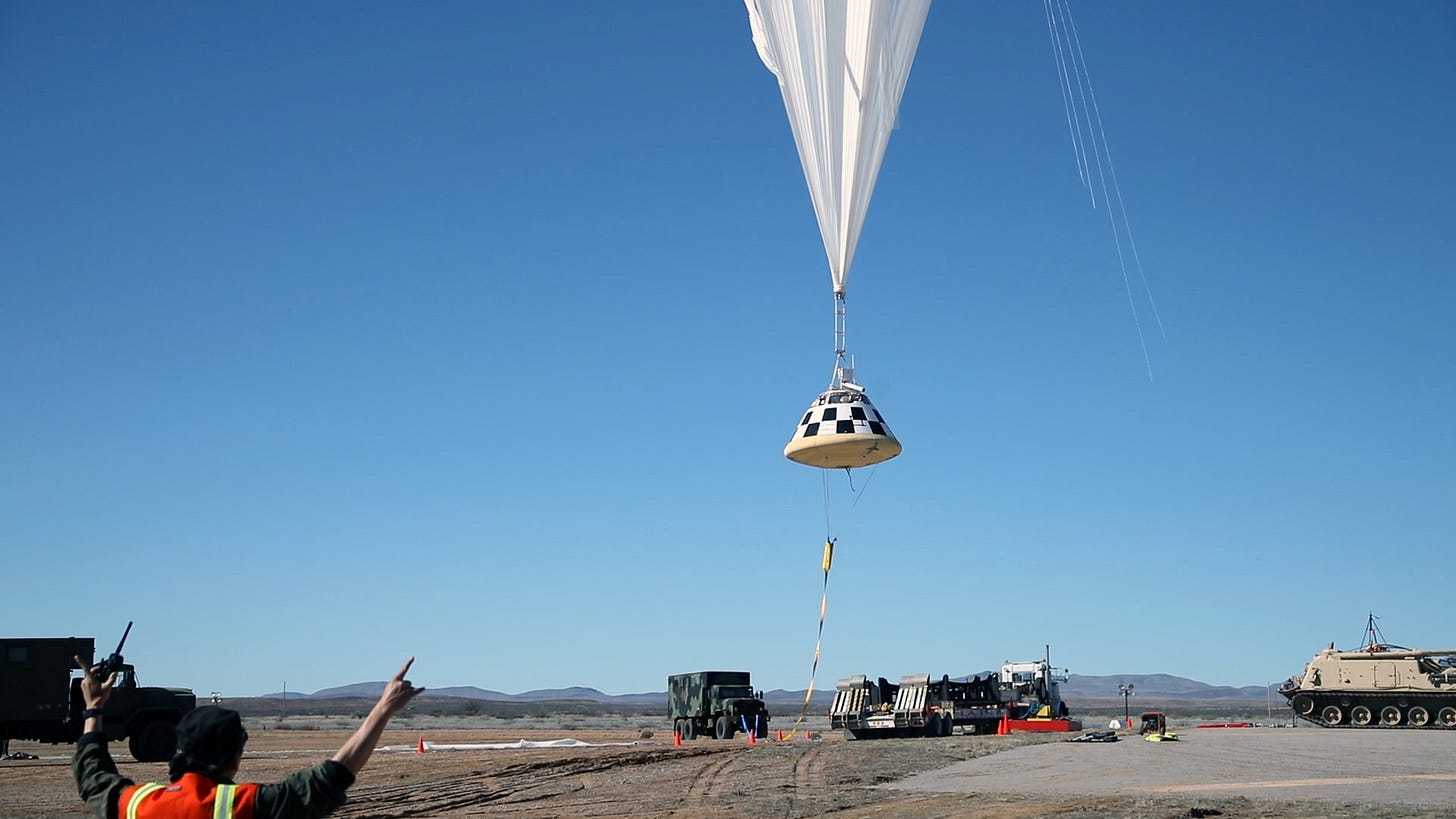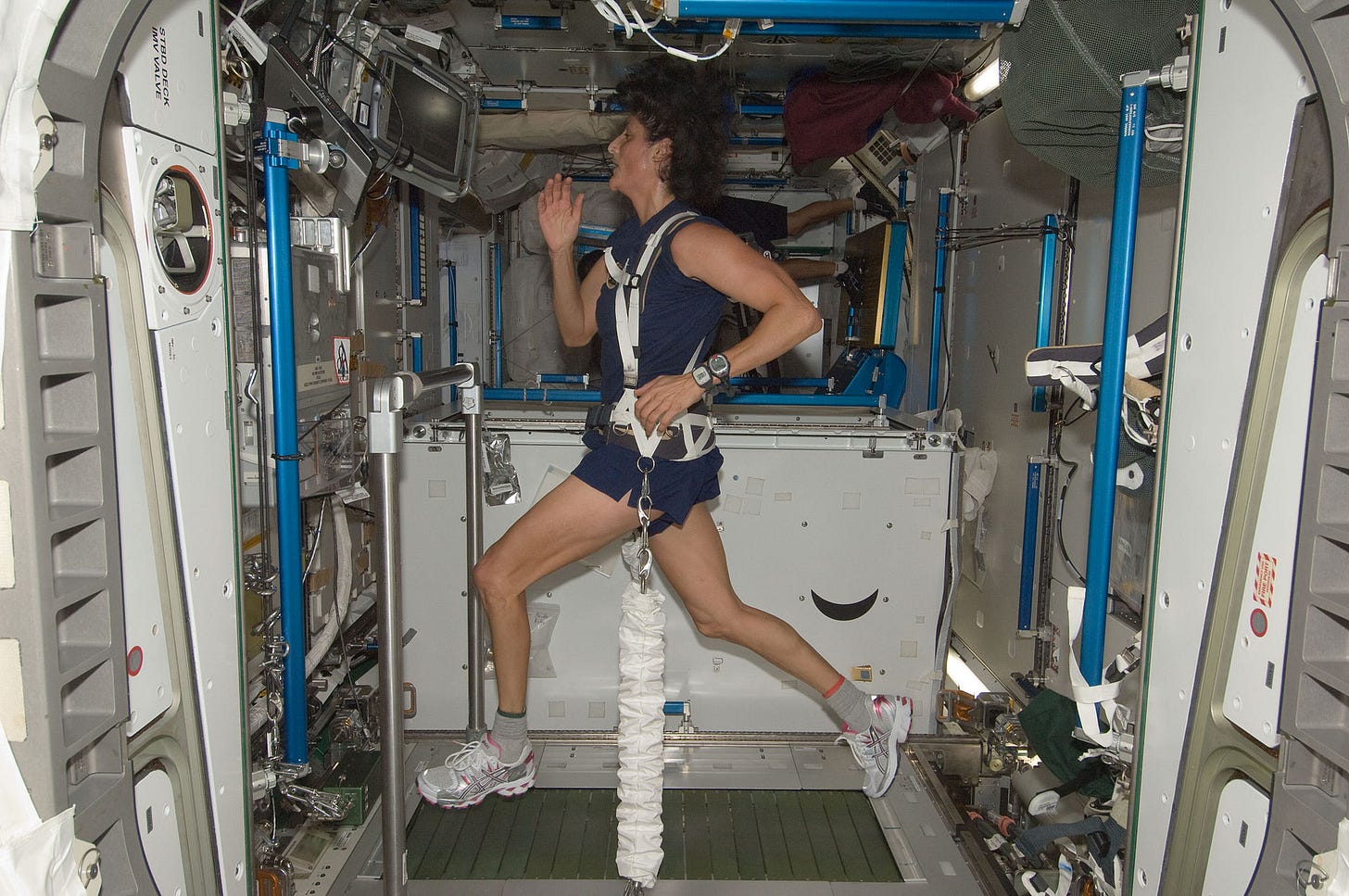Making the most out of being stuck in space
How two astronauts turned a crisis into an opportunity
Your life can change in the blink of an eye.
One day you’re preparing for a state-of-the-art space mission and the next you’re stuck in low orbit hovering 250 miles above the Earth. Wait what? That doesn’t happen to everyone. But that’s exactly what happened to astronauts Butch Wilmore and Suni Williams this summer.
Butch and Suni were conducting a crewed flight test of the Boeing Starliner capsule on June 5, 2024. The plan was to launch from Cape Canaveral to the International Space Station (ISS) and to return eight days later on June 14. However, trouble was brewing. As they approached the ISS, five reaction control system thrusters unexpectedly ceased to work, drastically lowering the capsule’s maneuverability.
Although they managed to get four of the thrusters up and running again, the risks they faced meant that the return trip had to be significantly delayed to ensure their safe return. Initially, they pushed the return trip back by seven days, until June 22. This date came and went, and the return trip still couldn’t move forward as planned. Soon enough, new return dates were being discussed: some suggested it could be as soon as a few weeks, while others speculated it could be as late as February 2025, coinciding with a SpaceX mission returning from the ISS.
This situation is not unprecedented. Sergei Krikalev and Aleksandr Volkov had to remain in space for a few extra months in 1991 after the collapse of the Soviet Union meant their launch and landing site was now in the newly independent country of Kazakhstan. They managed to return safely after several successful negotiations but their story, although different in context, is quite similar to what Butch and Suni are experiencing now.
Regardless of their predicament, Butch and Suni remain optimistic and hope to return to Earth soon. Here are some lessons that their experience can teach us:
1. Expect the best, prepare for the worst
Astronauts are some of the most qualified and prepared professionals ever. Most have extensive military training, piloting experience, and rigorous physical and technical education. NASA has been planning this mission for quite some time. They announced that Suni would join the Commercial Crew program in July 2015, while Butch joined in October 2020.
While their specific roles in the mission had not yet been confirmed, both Butch and Suni committed themselves to intense preparation. They especially focused on training for potential contingencies or scenarios that could threaten their safety or the mission’s success.
Astronauts, engineers, and pilots all embody the principle of hoping for the best but rigorously preparing for the worst. This approach isn’t about doubting the mission’s success but ensuring they are never caught off guard in a life-or-death situation.
Although the stakes in our own lives may not always mirror those of a space mission, the same principle applies. There are always small tasks or preparations we can undertake to better position ourselves for unexpected circumstances.
What can you plan or prepare for in the coming days to set yourself up for success in the event of an emergency?

2. See the Silver Lining
After learning the news that their return home might be delayed, Butch and Suni didn’t stress. Instead, they saw an opportunity. They quickly assisted with installing a new urine recycling pump, essential for life aboard the ISS, and then focused on their individual tasks.
Suni took on gene-sequencing work and conducted experiments with the “moon microscope,” specifically designed for performing blood analysis in space. She also engaged in “microgravity jogging,” reminiscent of the time when she became the first person in space to run a full marathon (2007) and triathlon (2012).

Butch helped inspect the plumbing hardware aboard the ISS as well as the installation and testing of a light meter in the “Veggie” project where astronauts have grown radishes and other crops in space.
In the end, Suni and Butch could have dwelled on the malfunctions and mistakes that forced them to stay in space longer than planned. However, they chose to focus on what was within their control and how they could make the most of their situation.
In the past, what situations caused you to focus on the negatives rather than appreciating what you truly had? How will you approach similar situations differently in the future?
3. Do your best to have fun
Building on the previous lesson, it’s easy to forget to enjoy our day-to-day lives. When things don’t go as planned, we often fall into a negative feedback loop, spiraling deeper into our own thoughts.
Butch and Suni didn’t let their circumstances stop them from having fun. They even organized a full Olympic presentation onboard the ISS:
Whether it’s singing in the car on the way to work or sharing a new hobby or passion with a loved one, like Butch and Suni, we all have the ability to seek out opportunities for fun in our everyday lives. It’s okay to be silly every once in a while!
What can you start doing to add some fun to your daily routine?



